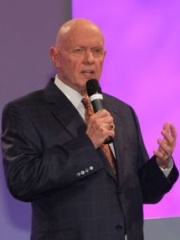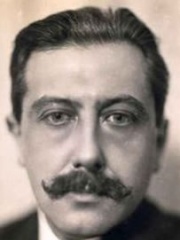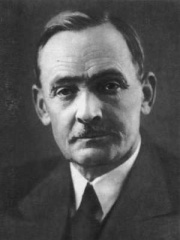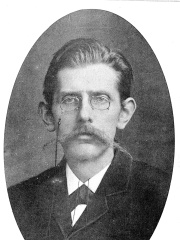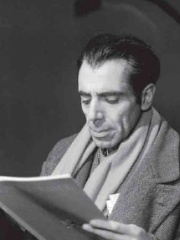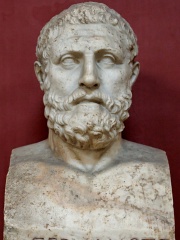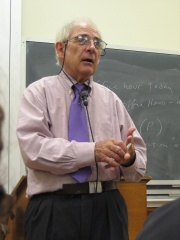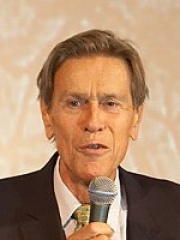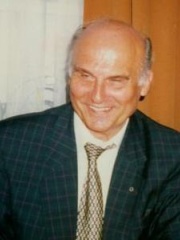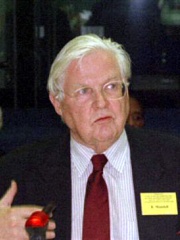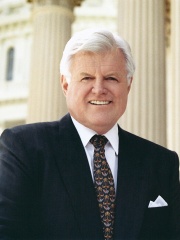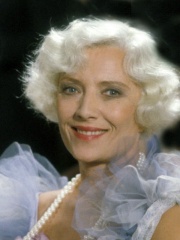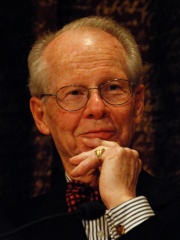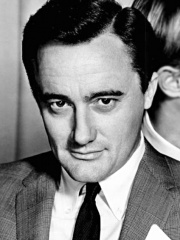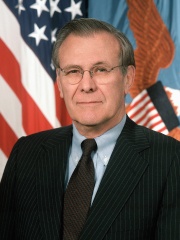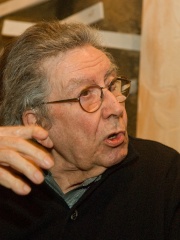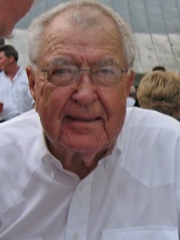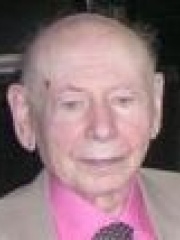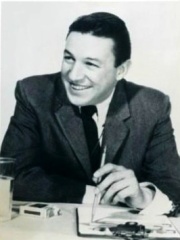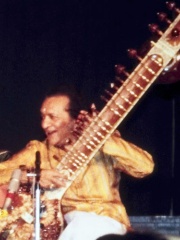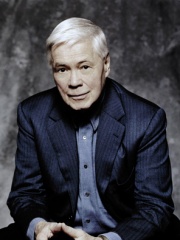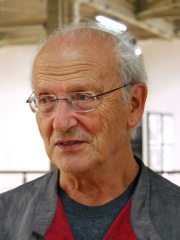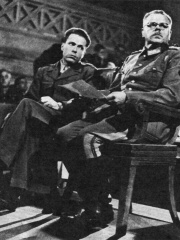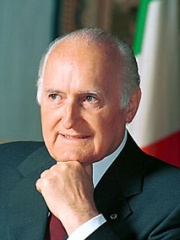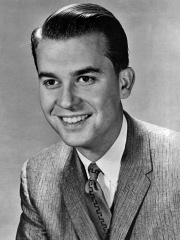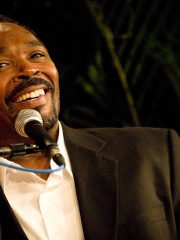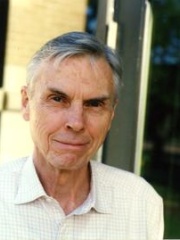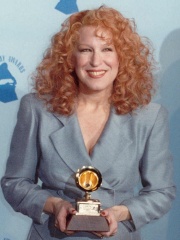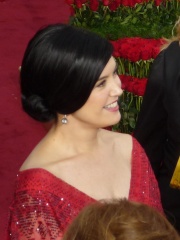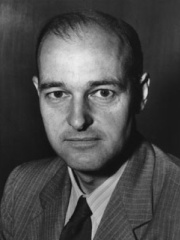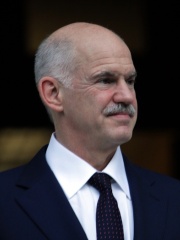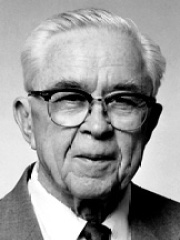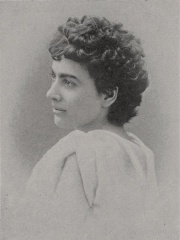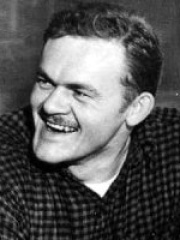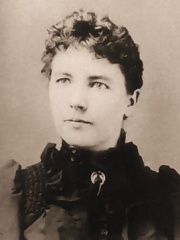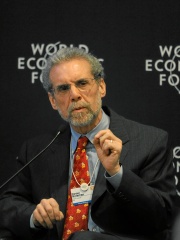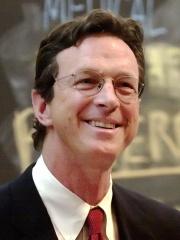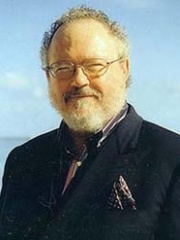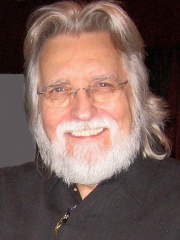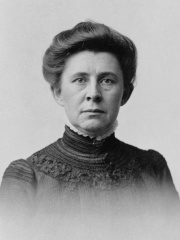Writer
Stephen Covey
1932 - 2012
EN.WIKIPEDIA PAGE VIEWS (PV)
 Stephen Covey
Stephen Covey
His biography is available in 38 different languages on Wikipedia (up from 37 in 2024). Stephen Covey is the 861st most popular writer (up from 970th in 2024), the 1,224th most popular biography from United States (down from 1,098th in 2019) and the 91st most popular American Writer.
Stephen Covey is most famous for his book, "The 7 Habits of Highly Effective People."
Memorability Metrics
Page views of Stephen Covey by language
Among Writers
Among writers, Stephen Covey ranks 861 out of 7,302. Before him are Pope Dionysius of Alexandria, Hans Jakob Christoffel von Grimmelshausen, Gaius Lucilius, Al-Zamakhshari, Georges Bernanos, and Yanka Kupala. After him are Jens Peter Jacobsen, Vātsyāyana, Sam Shepard, Zhang Sanfeng, Arthur Adamov, and Periander.
Most Popular Writers in Wikipedia
Go to all RankingsPope Dionysius of Alexandria
190 - 264
HPI: 69.10
Rank: 855
Hans Jakob Christoffel von Grimmelshausen
1622 - 1676
HPI: 69.06
Rank: 856
Gaius Lucilius
180 BC - 102 BC
HPI: 69.05
Rank: 857
Al-Zamakhshari
1075 - 1144
HPI: 69.04
Rank: 858
Georges Bernanos
1888 - 1948
HPI: 69.04
Rank: 859
Yanka Kupala
1882 - 1942
HPI: 69.02
Rank: 860
Stephen Covey
1932 - 2012
HPI: 69.00
Rank: 861
Jens Peter Jacobsen
1847 - 1885
HPI: 69.00
Rank: 862
Vātsyāyana
300 - 500
HPI: 68.99
Rank: 863
Sam Shepard
1943 - 2017
HPI: 68.99
Rank: 864
Zhang Sanfeng
1200 - 1301
HPI: 68.99
Rank: 865
Arthur Adamov
1908 - 1970
HPI: 68.98
Rank: 866
Periander
700 BC - 583 BC
HPI: 68.98
Rank: 867
Contemporaries
Among people born in 1932, Stephen Covey ranks 61. Before him are John Searle, Pierre-Gilles de Gennes, Ryszard Kapuściński, Robert Mundell, Hiroaki Sato, and Ted Kennedy. After him are Robert Benton, Stéphane Audran, Oliver E. Williamson, Robert Vaughn, Tomohiko Ikoma, and Donald Rumsfeld. Among people deceased in 2012, Stephen Covey ranks 46. Before him are Antoni Tàpies, Carroll Shelby, Benzion Netanyahu, Mike Wallace, Ravi Shankar, and Dietrich Fischer-Dieskau. After him are Sven Hassel, Jean Giraud, Albert O. Hirschman, Oscar Luigi Scalfaro, Dick Clark, and Rodney King.
Others Born in 1932
Go to all RankingsJohn Searle
PHILOSOPHER
1932 - 2025
HPI: 69.67
Rank: 55
Pierre-Gilles de Gennes
PHYSICIST
1932 - 2007
HPI: 69.57
Rank: 56
Ryszard Kapuściński
WRITER
1932 - 2007
HPI: 69.57
Rank: 57
Robert Mundell
ECONOMIST
1932 - 2021
HPI: 69.46
Rank: 58
Hiroaki Sato
SOCCER PLAYER
1932 - 1988
HPI: 69.31
Rank: 59
Ted Kennedy
POLITICIAN
1932 - 2009
HPI: 69.10
Rank: 60
Stephen Covey
WRITER
1932 - 2012
HPI: 69.00
Rank: 61
Robert Benton
FILM DIRECTOR
1932 - 2025
HPI: 68.88
Rank: 62
Stéphane Audran
ACTOR
1932 - 2018
HPI: 68.79
Rank: 63
Oliver E. Williamson
ECONOMIST
1932 - 2020
HPI: 68.76
Rank: 64
Robert Vaughn
ACTOR
1932 - 2016
HPI: 68.74
Rank: 65
Tomohiko Ikoma
SOCCER PLAYER
1932 - 2009
HPI: 68.54
Rank: 66
Donald Rumsfeld
POLITICIAN
1932 - 2021
HPI: 68.46
Rank: 67
Others Deceased in 2012
Go to all RankingsAntoni Tàpies
PAINTER
1923 - 2012
HPI: 70.02
Rank: 40
Carroll Shelby
RACING DRIVER
1923 - 2012
HPI: 69.66
Rank: 41
Benzion Netanyahu
HISTORIAN
1910 - 2012
HPI: 69.50
Rank: 42
Mike Wallace
ACTOR
1918 - 2012
HPI: 69.39
Rank: 43
Ravi Shankar
MUSICIAN
1920 - 2012
HPI: 69.34
Rank: 44
Dietrich Fischer-Dieskau
SINGER
1925 - 2012
HPI: 69.13
Rank: 45
Stephen Covey
WRITER
1932 - 2012
HPI: 69.00
Rank: 46
Sven Hassel
WRITER
1917 - 2012
HPI: 68.81
Rank: 47
Jean Giraud
COMIC ARTIST
1938 - 2012
HPI: 68.78
Rank: 48
Albert O. Hirschman
ECONOMIST
1915 - 2012
HPI: 68.71
Rank: 49
Oscar Luigi Scalfaro
POLITICIAN
1918 - 2012
HPI: 68.62
Rank: 50
Dick Clark
ACTOR
1929 - 2012
HPI: 68.51
Rank: 51
Rodney King
CELEBRITY
1965 - 2012
HPI: 68.35
Rank: 52
In United States
Among people born in United States, Stephen Covey ranks 1,224 out of NaN. Before him are John Tate (1925), Bette Midler (1945), Kirstie Alley (1951), Murray Rothbard (1926), Colin Powell (1937), and Roberta Flack (1937). After him are Sam Shepard (1943), Phoebe Cates (1963), George F. Kennan (1904), George Papandreou (1952), Edward B. Lewis (1918), and Lizzie Magie (1866).
Others born in United States
Go to all RankingsJohn Tate
MATHEMATICIAN
1925 - 2019
HPI: 69.04
Rank: 1,218
Bette Midler
ACTOR
1945 - Present
HPI: 69.04
Rank: 1,219
Kirstie Alley
ACTOR
1951 - 2022
HPI: 69.04
Rank: 1,220
Murray Rothbard
ECONOMIST
1926 - 1995
HPI: 69.03
Rank: 1,221
Colin Powell
POLITICIAN
1937 - 2021
HPI: 69.03
Rank: 1,222
Roberta Flack
SINGER
1937 - 2025
HPI: 69.03
Rank: 1,223
Stephen Covey
WRITER
1932 - 2012
HPI: 69.00
Rank: 1,224
Sam Shepard
WRITER
1943 - 2017
HPI: 68.99
Rank: 1,225
Phoebe Cates
ACTOR
1963 - Present
HPI: 68.98
Rank: 1,226
George F. Kennan
DIPLOMAT
1904 - 2005
HPI: 68.97
Rank: 1,227
George Papandreou
POLITICIAN
1952 - Present
HPI: 68.97
Rank: 1,228
Edward B. Lewis
BIOLOGIST
1918 - 2004
HPI: 68.97
Rank: 1,229
Lizzie Magie
GAME DESIGNER
1866 - 1948
HPI: 68.97
Rank: 1,230
Among Writers In United States
Among writers born in United States, Stephen Covey ranks 91. Before him are James Jones (1921), Laura Ingalls Wilder (1867), John Dos Passos (1896), L. Ron Hubbard (1911), Daniel Goleman (1946), and Michael Crichton (1942). After him are Sam Shepard (1943), Thomas Harris (1940), Robert E. Howard (1906), Neale Donald Walsch (1943), MacKenzie Scott (1970), and Ida Tarbell (1857).
James Jones
1921 - 1977
HPI: 69.36
Rank: 85
Laura Ingalls Wilder
1867 - 1957
HPI: 69.36
Rank: 86
John Dos Passos
1896 - 1970
HPI: 69.27
Rank: 87
L. Ron Hubbard
1911 - 1986
HPI: 69.26
Rank: 88
Daniel Goleman
1946 - Present
HPI: 69.20
Rank: 89
Michael Crichton
1942 - 2008
HPI: 69.14
Rank: 90
Stephen Covey
1932 - 2012
HPI: 69.00
Rank: 91
Sam Shepard
1943 - 2017
HPI: 68.99
Rank: 92
Thomas Harris
1940 - Present
HPI: 68.96
Rank: 93
Robert E. Howard
1906 - 1936
HPI: 68.86
Rank: 94
Neale Donald Walsch
1943 - Present
HPI: 68.78
Rank: 95
MacKenzie Scott
1970 - Present
HPI: 68.67
Rank: 96
Ida Tarbell
1857 - 1944
HPI: 68.67
Rank: 97
